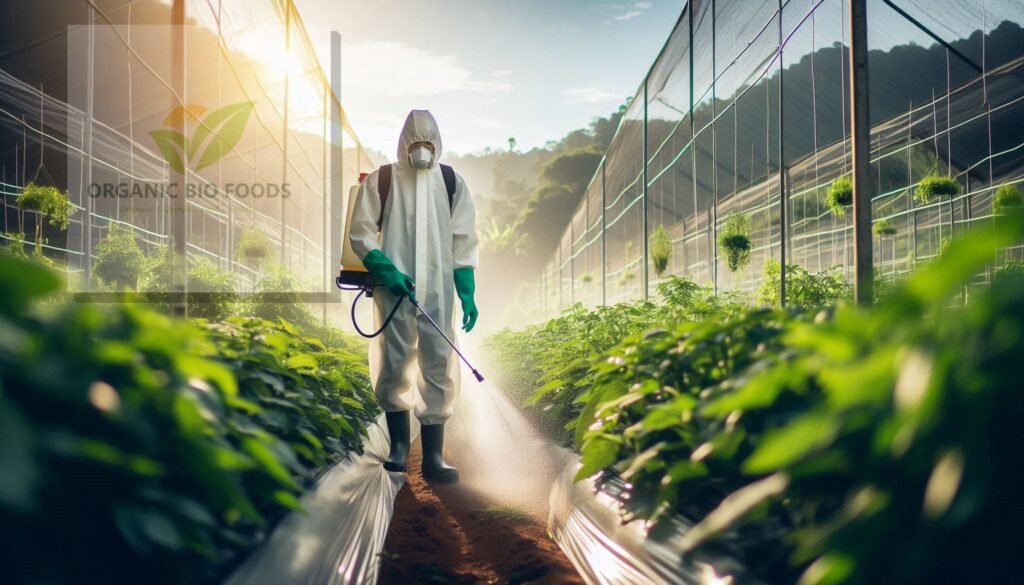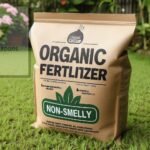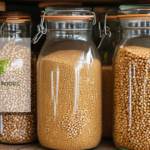Organic farming is all about being sustainable, keeping biodiversity, and following natural methods to keep the soil healthy and crops growing. One big rule in organic farming is not allowing synthetic chemicals, GMOs, and any other non-natural stuff. Well, when we are talking about planting stuff, organic rules are pretty tight in order for everything grown this way to be actually organic right from the very beginning up until the end. In this post, we will look at the kinds of planting materials and some practices that don’t fly very well with organic farming and give you the lowdown on why these materials are a no-go and how they can impact organic farming systems.
- Genetically Modified Organisms (GMOs)
Just about the biggest no-no of organic farming is the use of GMOs, or genetically modified organisms. So, basically, GMO plants are those that have been tampered with at the genetic level using some fancy engineering tricks to get them to express certain traits, like being resistant against pests or being tolerant to herbicides.
Why GMOs Are Not Accepted:
Environmental Impact: GMOs can lead to unintended environmental consequences, such as the development of resistant pests and the contamination of non-GMO crops through cross-pollination.
Soil Health: Most people would associate GMO crops with heavy applications of chemical herbicides, which could mess up their soil health and reduce biodiversity.
Customer Confidence: Many people opt for organic products to avoid GMO, and anything like using GMO seeds would completely disrupt the trust in organic labels.
- Seeds Coated With Artificial Chemicals
So, in regular farming, they generally cover seeds with synthetic chemicals such as fungicides, insecticides, or herbicides to protect them from pests and diseases. However, you are not allowed to use those treated seeds in organic farming.
Why Synthetic Treated Seeds Are Not Accepted:
Chemical Residues: Seeds treated with synthetic chemicals can bring in harmful residues into the soil, thus undermining the organic farming philosophy that seeks to avoid all forms of synthetic inputs.
Contaminating Soil and Water: The very chemicals applied to the treatment of seeds could leach into the soil and water, potentially harming helpful microorganisms, insects, and other wildlife.
Plant Health: Organic farming focuses on the development of natural resistance in plants by healthy soil and biodiversity rather than resorting to chemical protection that disrupts natural ecosystems.
- Clones and Tissue Culture Plants Treated with Synthetic Hormones
Cloning and tissue culture provide ways of making exact copies of plants, often using artificial hormones to stimulate roots and shoots. Although such techniques are fairly common in conventional farming, they are prohibited in organic farming.
Why clones and tissue culture plants with synthetic hormones are not accepted:
Synthetic Inputs: Organic farming does not allow the use of synthetic things, for example, hormones used in tissue culture. People consider chemicals like these to be fake and totally not fitting in with the organic vibe of growing and reproducing.
Biodiversity Concerns: The use of clones reduces genetic diversity, making crops highly vulnerable to pests and diseases. Organic farming is all about increasing genetic diversity to make the ecosystem resilient.
- Chemically Treated Plant Cuttings and Grafts
Most fruit trees and vines, as well as other perennial crops, are propagated using plant cuttings or grafts. In conventional farming, these cuttings or grafts are usually subjected to some kind of chemical treatment to prevent disease and to encourage growth. Such treatments, however, are not permitted under organic farming.
Why Chemically Treated Plant Cuttings and Grafts Are Not Accepted:
Natural alternatives: Organic farming encourages the use of natural alternatives, such as untreated or organically treated cuttings, to avoid introducing synthetic chemicals into the environment .
Soil Health and Ecosystem Integrity: Chemicals they use on the treated cuttings will mess up soil health and throw off the balance of the nearby ecosystem, which goes directly against what organic farming is about.
Residues: Treated cuttings and grafts can carry chemical residues that could persist in the soil or be absorbed by the plant, ultimately making their way into the food chain.
- Non-Organic Seeds and Plants
So, organic farmers are supposed to get seeds and plants from certified organic growers wherever possible. Non-organic seeds and planting stock are only allowed under strict conditions and must not have been treated with prohibited substances.
Why Non-Organic Seeds and Planting Stock Are Generally Not Accepted:
Sticking to Organic Standards: Using non-organic seeds can undermine the organic integrity of the crop. Organic farming standards emphasize the use of seeds that are produced without synthetic chemicals or GMOs .
Soil Contamination: You know, non-organic seeds might have been around pesticides, herbicides, or other synthetic stuff that can mess up the soil, which totally goes against organic principles.
Limited Exception: You may use non-organic seeds and planting stock only if you cannot find any organic ones available out there, and they’ve got to be untreated or treated with stuff that’s cool for organic use.
Finally, when choosing planting materials for your organic garden or farm, it’s essential to seek out certified organic options that align with these standards. This not only ensures that your crops are truly organic but also supports the broader goals of sustainability and environmental protection that are at the heart of organic farming.








